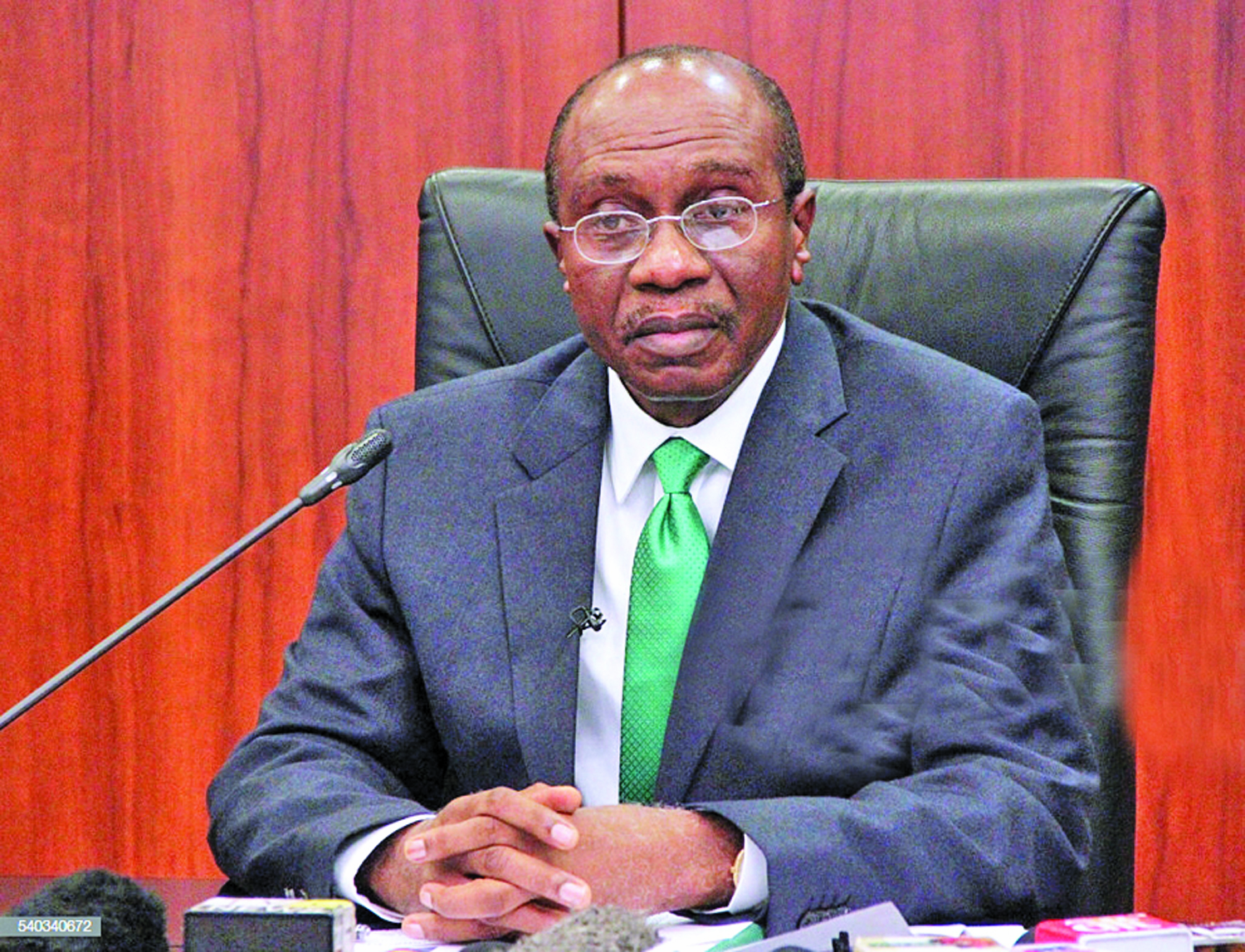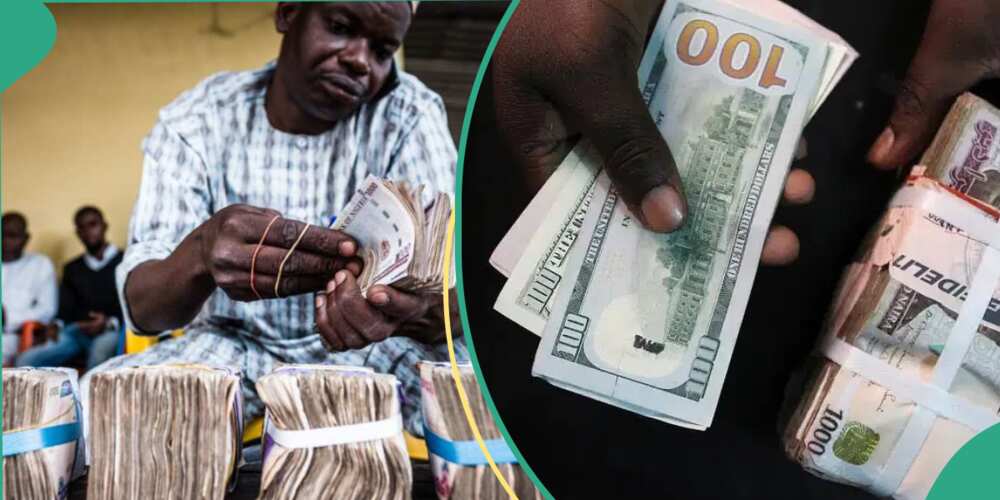Business
Naira Redesign in Overall Interest of Nigerians, Economy – CBN

*Insists due approval sought, obtained from Buhari
*Moghalu backs apex bank, says policy will address insecurity
The Central Bank of Nigeria (CBN) yesterday urged Nigerians to support the currency redesign project which is in their overall interest and that of the economy at large.
The central bank further insisted that it followed the law and due process to carry out the redesigning exercise, which is 12 years due.
This is coming as a former Deputy Governor of the CBN, Prof. Kingsley Moghalu has commended the apex bank on the proposed redesigning of the naira, saying the measure will address insecurity in the country.
The apex bank’s clarification came against the backdrop of claims by the Minister of Finance, Budget and National Planning, Mrs. Zainab Ahmed, that her ministry was not carried along in the proposed redesigning of the Naira.
CBN Director in charge of Corporate Communication, Mr. Osita Nwanisobi, had in a statement, expressed surprise at the minister’s claim, stressing that the CBN remains a “very thorough institution that follows due process in its policy actions”.
He said the CBN management, in line with provisions of section 2(b), section 18(a), and section 19(a)(b) of the CBN Act 2007, had duly sought and obtained the approval of President Muhammadu Buhari in writing to redesign, produce, release and circulate new series of N200, N500, and N1,000 banknotes.
Nwanisobi urged Nigerians to support the currency redesign project, stressing that some persons were hoarding significant sums of banknotes outside the vaults of commercial banks.
He argued that such a trend should not be encouraged by anyone who means well for the country.
READ ALSO:
- 5G Network Has no Negative Health Effects; NCC Reassures Nigerians
- 2023: Tinubu storms Ondo for meeting with Afenifere leaders
- Nobody Will Sack Me As PDP Chairman, Ayu dare Wike, others
He pointed out that currency management in the country had faced several escalating challenges which threatened the integrity of the Naira, the CBN, and the country in general, adding that every top-rate central bank was committed to safeguarding the integrity of the local legal tender, the efficiency of its supply, as well as its efficacy in the conduct of monetary policy.
On the timing of the redesign project, Nwanisobi explained that the CBN had even tarried for too long considering that it had to wait 20 years to carry out a redesign, whereas the standard practice globally was for central banks to redesign, produce and circulate new local legal tender every five to eight years.
While assuring Nigerians that the currency redesign exercise was purely a central banking exercise and not targeted at any group, the CBN spokesman expressed optimism that the effort will, among other goals, deepen Nigeria’s push to entrench a cashless economy in the face of increased minting of the eNaira.
This, he said, is in addition to helping to curb the incidents of terrorism and kidnapping due to access of persons to the large volume of money outside the banking system used as a source of funds for ransom payments.
The CBN director urged Nigerians, irrespective of their status, to support the Naira redesign project as it is for the greater good of the economy.
The CBN Governor, Mr. Godwin Emefiele, had on Wednesday announced a proposed redesign of the currency in the variation of N200, N500 and N1,000.
Emefiele, who pointed out that the change was a sequel to the approval of President Muhammadu Buhari, said circulation of the new banknotes would commence on December 15, 2022.
He said the development was also aimed at checking the increasing ease and risk of currency counterfeiting evidenced by several security reports, and the increased risk to financial stability as well as the worsening shortage of clean and fit currency, with the attendant negative perception of the central bank.
Emefiele said there was significant hoarding of naira notes by members of the public, with statistics showing that over 80 per cent of the currency in circulation was outside the vaults of the commercial banks.
He said as of September 2022, a total of N3.2 trillion was in circulation, of which N2.73 trillion was outside the vaults of the banks, describing the development as unacceptable.
READ ALSO:
- One killed as suspected IPOB/ESN members attack police checkpoint
- Terror Threat: Atiku meets US officials in Washington
- Your hatred for Nnamdi Kanu will soon destroy you and Nigeria as a whole, IPOB warns Malami
Emefiele explained that the new and existing notes would remain legal tender and circulate together until January 31, 2023, when the existing currencies shall seize to be legal tender.
As a result, he said all banks currently holding the existing denominations of the currency might begin returning the notes to the CBN immediately, adding that the newly designed currency would be released to the banks on a first come, first served basis.
Emefiele also urged bank customers to begin paying into their bank accounts the existing currency notes to enable them to withdraw the new banknotes once circulation begins in mid-December 2022.
Moghalu Backs Apex Bank, Says Policy Will Address Insecurity
Meanwhile, a former Deputy Governor of the CBN, Prof. Moghalu, has commended the apex bank on the proposed redesigning of the naira.
Moghalu, a political economist, who gave the commendation in a statement issued yesterday in Lagos, advocated a 90-day window for the implementation.
He said: “I fully support the Central Bank of Nigeria in redesigning the Naira. If 80 per cent of banknotes in circulation are outside the banks, that is troubling.
“The CBN obviously wants to force all those notes back into the banking system. Those with the notes must surrender them to get new ones or else it becomes illegal tender after January 31, 2023.
“The flip side is that people who are holding huge amounts of cash outside the banking system for nefarious reasons will go to the parallel forex market to buy hard currency, putting further downward pressure on the value of the Naira as too much Naira will be chasing too few dollars.”
He, however, expressed doubt that the step would solve inflation, “because there also are other major reasons for inflation such as the forex crisis, which this new move can exacerbate, as well as the impact of the security crisis on food price inflation.”
According to him, the step, however, has become necessary for national security but the window for implementation is too short.
“This will put a lot of operational pressure on commercial banks and the financial system in general.
- PDP, LP Knock Fitch’s Projection on Tinubu winning 2023 election, Say Report Unrealistic
- Coalitions of CSOs tackle US over security advisory
- Insecurity: Turkey to support Nigeria with fighter jets, drones
“A 90-day window will have been better, but one can understand the need to avoid interfering with the elections,” he added.
Youth Leaders Back CBN, Urge Emefiele to Ignore Finance Minister
In a related development, a group, Ethnic Youth Leaders, has also called on Emefiele, to ignore the Minister of Finance, Ahmed, over her attack on the naira redesigning proposal and go ahead with its decision to launch the new notes in December.
The group who made the call in a statement by its convener, Godwin Meliga, in Abuja yesterday, described the minister’s statement as reckless and a plot to undermine President Buhari.
The group insisted that the decision to redesign naira is a welcomed development as it was a way of tightening the money supply in the face of rising inflation.
It therefore urged the finance minister to apologise to Buhari, and the CBN over her reckless attack.
“We are of the view that CBN doesn’t need to notify her ministry, in line with the law. The decision to replace some naira denominations with new ones would be positive for the economy in the medium to long-term,” the group explained.
Thisday
Business
Breaking: Dangote brings diesel price down to N1000/litre

Breaking: Dangote brings diesel price down to N1000/litre
Dangote Petroleum Refinery has announced a further reduction in the price of diesel.
When it commenced operation a few weeks ago, Dangote Petroleum Refinery pegged the price of diesel as N1,200.
While rolling out the products, the refinery supplied at a substantially reduced price of N1,200 per litre three weeks ago, representing over 30 percent reduction from the previous market price of about N1,600 per litre.
READ ALSO:
- Kano anti-corruption agency slams fresh charges against Ganduje
- Troops kill ISWAP Commanders, 30 other terrorists
- Ooni of Ife dismisses agitators of Yoruba nation
However, on Tuesday, a further reduction of N200 was noticed in the price, with the product now pegged at N1,000.
This significant reduction in the price of diesel, at Dangote Petroleum Refinery, is expected to positively affect all the spheres of the economy and ultimately reduce the high inflation rate in the country.
The President of Dangote Group, Aliko Dangote, had during the Eid-el-Fitr celebration said if the cost price of diesel comes down, the inflation rate will be substantially reduced.
Dangote spoke when he visited President Bola Tinubu in his residence in Lagos State to celebrate the end of the Ramadan fast with him.
Breaking: Dangote brings diesel price down to N1000/litre
Business
Naira records five-month highest gain, sells below N1000/$ at parallel market

Naira records five-month highest gain, sells below N1000/$ at parallel market
The naira continued its positive showing against the United States dollar on Monday, selling below N1000/$ in some segments of the parallel market.
Newstrends reports that the Federal Government, groups and some individuals have mounted a spirited campaign for those hoarding the dollars to push them out as naira continues to appreciate.
On Monday, the naira was offered in some parts of Lagos and Abuja between N995 and N1,050 per dollar in the parallel market. It was N1,230/$ on Friday.
The latest gain, being over five-month highs, came in the wake of the Iranian attack on Israel and a rise in the crude oil price.
Goldman Sachs, American investment bank economists, had earlier predicted that the naira’s bullish momentum on the foreign exchange market would likely cause it to trade for less than N1,000 per US dollar in the coming months.
According to a report by Nairametrics, the group claimed that the rally in Nigerian currency helped recover from large losses after two devaluations since last June by being bolstered by capital inflows and successive interest rate hikes.
In March, Goldman Sachs projected that the Naira would appreciate to N1,200 per dollar in 2024.
At the official foreign exchange market, the rate was put at N1,136/$ in contrast with N1,205/$ last Friday.
The top bank has implemented several policy initiatives in recent months to bring stability to the foreign exchange market.
The CBN increased interest rates to 24.75% at the most recent meeting of the Monetary Policy Committee (MPC), which helped it recover losses from the two devaluations that occurred since June of last year.
Further gains for the naira result from the CBN’s ongoing intervention, which involves selling foreign exchange to Bureau De Change operators at a revised rate.
The market anticipates higher inflows of US dollars from the sale of foreign currency bonds in the second quarter as disclosed by Finance Minister Wale Edun.
The Federal Government has just offered high-yield short-term debt products at a premium to entice overseas capital into the economy.
The Middle East’s geopolitical unrest and
Notwithstanding a drop in Nigeria’s production volume, crude oil prices have risen beyond $90.
Nigerian grades of oil are trading at a premium to the ICE Brent benchmark.
The Middle East’s geopolitical unrest and the anticipation of an Iranian government strike on Israel caused oil prices to soar.
Business
Breaking: Nigeria’s inflation rises to 33.2%, says NBS

Breaking: Nigeria’s inflation rises to 33.2%, says NBS
The National Bureau of Statistics (NBS) says the nation’s inflation rate rose to 33.2 per cent for the month of March 2024.
This represents a 1.5 per cent increase over 32.7 per cent recorded in February 2024.
The NBS disclosed this in a new report released on Monday.
It explained that the rise was primarily due to higher costs of food, beverages, energy, and housing. Compared to February 2024, the inflation rate in March increased at a slower pace, with food inflation reaching 40.01% year-on-year.
NBS attributed the spike in food prices to the rising costs of items like garri, millet, yam tubers, and others. On a month-on-month basis, food inflation slightly decreased to 3.62% in March 2024.
Urban inflation also increased to 35.18% year-on-year in March 2024, while rural inflation stood at 31.45%.
Core inflation, which excludes volatile agricultural products and energy, was 25.90% year-on-year in March 2024.
Overall, the rising cost of living in Nigeria is evident in the significant increase in inflation rates across different categories.
It is crucial for policymakers to address these challenges to alleviate the financial burden on the population.
-

 metro7 days ago
metro7 days agoTribute: C.K George, Epitome of Courage, by Kunle Awobodu
-

 metro6 days ago
metro6 days agoTroops arrest ISWAP commander involved in Army General, 3 soldiers’ killing in Borno
-

 News5 days ago
News5 days agoBREAKING: Ex-Abia gov, Ogbonnaya Onu, is dead
-

 metro7 days ago
metro7 days agoBandit kingpin, Dangote, siblings killed in Katsina
-

 News6 days ago
News6 days agoBetta Edu threatens to sue BBC, alleges defamation
-

 News6 days ago
News6 days agoI never said Aiyedatiwa is Tinubu’s preferred candidate in Ondo – Interior Minister
-

 metro6 days ago
metro6 days agoJUST IN: Actor Junior Pope resuscitated after death scare
-

 metro6 days ago
metro6 days agoPolice arrest female kidnapper in Ebonyi, rescue six abducted children





















